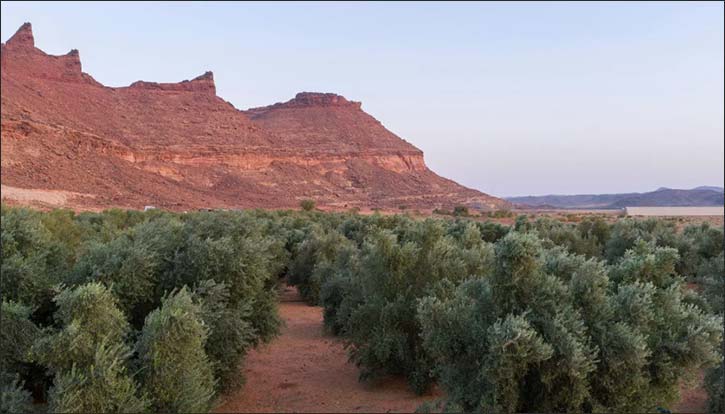Riyadh, November 26, 2025, SPA — The Ministry of Environment, Water and Agriculture announced that local olive production in the Kingdom has surged past 351,000 tons. This achievement is driven by an increase in cultivated areas across regions with substantial comparative production advantages, raising the total number of olive trees to nearly 21.5 million, including over 18 million fruit-bearing trees.
On the occasion of World Olive Tree Day, observed annually on November 26, the ministry highlighted olives as a promising crop that plays a pivotal role in supporting sustainable economic and social development and enhancing food security, in line with the National Agriculture Strategy and Vision 2030.
The expansion of cultivation areas, coupled with the implementation of sustainable agricultural practices and modern farming technologies, has enabled the Kingdom to rank among the world’s leading olive-producing countries in both area and production volume. The development of value-added industries further strengthens the integration and efficiency of the production chain.
Al-Jouf Region remains the most important center, leading the Kingdom with a production of 290,000 tons from about 18 million trees. It is followed by Hail Region with 19,500 tons, Tabuk Region with 18,700 tons, and Qassim Region in fourth place with 18,000 tons.


